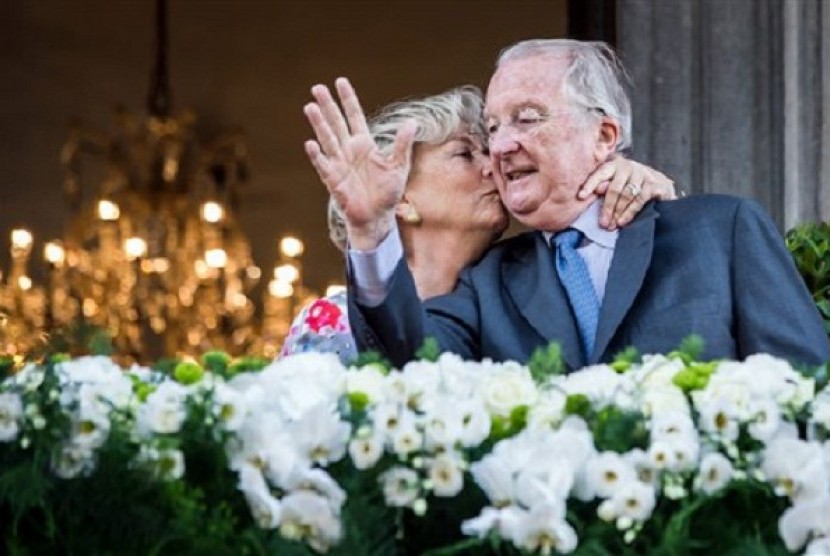REPUBLIKA.CO.ID, BRUSSELS - In a fractious nation ever more divided by language, it may be too much to ask for a royal to hold it all together. Belgian King Albert on Sunday hands over the throne to his son Philippe in a day-long ceremony, but the transition from a trusted monarch to an untested successor gives Belgians yet another subject to disagree on.
During his two-decade reign, Albert oversaw much of the steady unraveling of the unitary country into a federal state where 6 million Dutch-speaking Flemings and 4.5 million French-speakers increasingly live apart.
So even if Sunday's celebrations feature heartwarming balcony scenes with the new royal couple kissing and acknowledging the cheers of the crowd below, King Philippe may face trouble as early as next June, when elections will question everything from Belgian nationhood to the place of the monarchy.
"It will be his litmus test," said Brussels University professor Marc Uyttendaele. After the last elections it took a record 541 days before a government could be formed amid much bickering about how much more power should be sapped from the central state to profit the separate language groups.
A large majority of Belgians and political parties happily lived with a royal family led by an apolitical King Albert, who brought a sense of fun and warmth to an institution that had rarely given Belgians much to cheer about.
At 79, though, he has grown increasingly frail. Since he decided to step down on July 3, he has been doing a farewell tour of the major cities on both sides of the linguistic frontier that cuts the kingdom in half.
For many in many in northern Flanders, the monarchy has long been seen as a francophone institution working at the expense of the Dutch-speakers. Historically, royals have had trouble yielding to a parliamentary democracy and Albert was seen as the first to play the part perfectly.
Belgians will be relieved if Philippe takes after him.
"Let him continue like his father. Because everybody was very happy," said teenager Thibault Beyaert, who cheered Albert in Ghent, bedecked in Belgian colors and waving a tricolor flag. "It can only be positive."
In the Flemish city 50 kilometers (30 miles) west of the capital, there was still uncertainty about Philippe.
"There were people who said that 'no, he is not ready', but it is not true," said Monica Couvent as she stood among the throngs and discussed the largely unproven crown prince. "He must be given the opportunity."
Philippe, who is married to Princess Mathilde and has four children, has been groomed for the job as a leader of foreign trade delegations. Silver-haired and bespectacled, he has the looks of a future monarch, if not the natural grace.
"He is not the smoothest of characters," said historian and author Marc Reynebeau. "It is wait and see. He made a few statements that were less than promising."
Making some allusions that he would let himself be heard on the political stage, Philippe has produced fodder for anti-royalists. "He said he had a mission when he is there for a ceremonial role. He should not have a mission," said Reynebeau.


